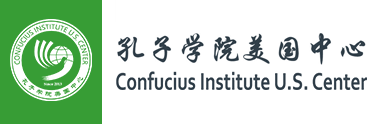Ongoing Defense of the Confucius Institute Program
On October 9th, in an open letter to state education commissioners, Secretary of State Mike Pompeo and Secretary of Education Betsy DeVos took aim at Confucius Institute and Confucius Classroom programs in the United States’ higher education and K-12 education system. In their letter, they mischaracterized Confucius Institutes’ purpose and function, and once again falsely identified the role of the Confucius Institute U.S. Center. In response, we sent the following open letter to correct the misinformation.
October 19, 2020
Gao Qing
Confucius Institute U.S. Center
1776 Massachusetts Ave. NW, Suite 410
Washington, DC 20036
Greetings,
I am the Executive Director of the Confucius Institute U.S. Center, Inc. (CIUS), an independent nonprofit in Washington DC dedicated to promoting the teaching of the Chinese Language and culture in the United States. CIUS was mentioned in a letter you may have recently received from the United States Departments of State and Education intimating that CIUS is somehow a central headquarters for Confucius Institutes in the U.S. and part of an insidious plot to influence students and infringe upon academic freedoms. The Department of State has called CIUS part of a “malign influence on U.S. campuses” that “disseminates [Chinese Communist Party] propaganda.” We were also recently targeted by the Department of State as a “foreign mission” ostensibly in an effort to provide transparency on how we allegedly manage and control individual Confucius Institute (CI) programs and Confucius Classrooms (CC) on college campuses and in K-12 schools.
You may rest assured—we are not part of any so-called Chinese conspiracy to indoctrinate students with Chinese propaganda. Instead, the CIUS Center offers supplemental educational opportunities independent of college campus to exceptional U.S. students who may not have the resources to further their education outside of the traditional classroom setting. We believe in empowering students so that they will have the skills to read and learn for themselves. This opens career and travel possibilities, building bridges to new places and new people. Please see our website(https://www.ciuscenter.org/)for more information about my background as a teacher and CIUS’s work in promoting Chinese language and culture—not politics.
We were pleased to provide the State Department with information about how CIUS works, but we were surprised the Department’s failure to share any of that transparency with you. This failure is perhaps because they did not like that our answers proved that CIUS has nothing to do with the management or operation of individual CI and CC programs across the country. As you already know, CIUS has never worked with you or your academic programs. I feel it was unnecessary to malign my office and label it a foreign mission just to elicit from us simple facts that were easily available, facts that the State Department apparently didn’t want to believe. Please see a copy of our letter to the State Department (https://www.ciuscenter.org/letter-to-the-state-department/) demonstrating that we have no relationships with any college or K-12 Confucius Institute program.
The State Department is correct that their designation of CIUS as a foreign mission does not affect any Confucius Institute program or classroom at your school or in your state. But they are mistaken when they say that designating CIUS as a foreign mission will bring transparency to the CI programs, because, as you well know, CIUS has nothing to do with running those programs. Their mistaken beliefs about CIUS should not affect your own decisions about having a CI or CC program for your interested students.
You should also know that in connection with the State Department’s allegations about CIUS, we have asked the State Department to provide us with any specific examples or evidence of propaganda, threats, intimidation, or malign influences in which CIUS or any CI or CC program has been involved. The State Department has provided no such information so far, but if they ever do, we will be happy to share it with you.
It is ironic that the lack of a central resource or coordinating body in the U.S. for Confucius Institute programs has hampered the ability for an accurate picture to be portrayed on how programs like yours work, whether best practices could be adopted, or whether a better rapport with the U.S. Government could have been established. CIUS has already worked with the United States Senate and the Government Accountability Office (https://www.gao.gov/products/GAO-19-401T ) to provide transparency on the teaching of Chinese language in America. I believe both bodies understood my position that Confucius Institute programs were not meant to be a substitute for classes in Chinese History or Asian studies. Those courses have an important place in any curriculum because that is where differing world views can be understood and debated. CIUS is just doing its part by promoting the learning of the language of people who happen to have been born in a different country. Learning other countries’ languages doesn’t mean you agree with what those nations stand for—it helps you understand them better, which to me is what language education is all about.
As a teacher and school administrator, I value education more than anything. As a United States resident and Director of a successful non-profit, I value this country’s commitment to the ideals of academic freedom. You don’t have to just take my word for it, as two universities with CI programs recently defended their CI programs in response to the joint letter. I am sorry that the demonization of CIUS and Confucius Institute programs was the reason that I had to write to you, but I feel it was my responsibility for to be sure you have at hand the facts about my office and its programs.
Sincerely,
Gao Qing
Executive Director
Confucius Institute U.S. Center


